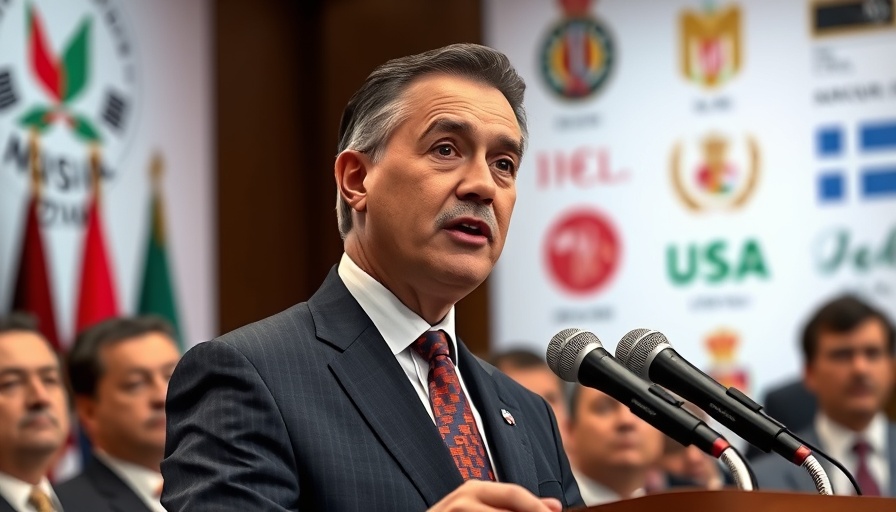
The VAT Crisis: A Test of Stability for the GNU
In a political landscape already fraught with tension, the fallout from South Africa's Value Added Tax (VAT) increase poses a serious threat to the Government of National Unity (GNU). As the coalition led by President Cyril Ramaphosa struggles to maintain stability amidst rising public discontent, the calls for unity from political figures like the ANC’s leader underscore the urgency for a cohesive approach to governance.
The Political Landscape: Challenges and Opportunities
The GNU, which comprises major parties including the African National Congress (ANC), the Democratic Alliance (DA), and the Economic Freedom Fighters (EFF), faces multiple pressures. IncreasingVAT and economic hardships have intensified scrutiny towards these coalition dynamics, particularly as the 2024 general elections draw near. There are fears that failure to effectively manage these challenges could lead to a significant realignment of power dynamics within South Africa's political arena.
Potential Impacts on Voter Turnout and Electoral Reform
Amid these tumultuous discussions, voter turnout becomes paramount. The electorate's trust in the GNU is waning, and there is palpable frustration regarding issues like service delivery and income inequality. Experts suggest that if grievances continue to mount without appropriate governmental response, upcoming elections may witness low engagement rates, raising questions about the efficacy and credibility of electoral reforms currently on the table.
Voices of Opposition: Reacting to the Current Crisis
Leaders from opposition parties, such as John Steenhuisen from the DA and Julius Malema of the EFF, are leveraging unrest to advocate for alternatives to the current coalition framework. The critique centers on accusations of insufficient anti-corruption measures and a perceived failure to address pressing societal issues like gender-based violence and youth unemployment efficiently. This dissent could catalyze shifts in voter alliances as citizens search for representations that align with their aspirations.
Looking Ahead: Future Predictions Amidst Uncertainty
As South Africa approaches both the 2024 general elections and the 2026 municipal elections, it is evident that the current political climate will shape not only party strategies but also policy directions. Observers predict that without any substantive changes in the GNU’s approach and delivery, parties might struggle to grasp the aspirations of a disillusioned populace. Ensuring political stability and effective governance could be critical in mitigating risks that destabilize the current democratic framework.
Practical Insights: What Can Be Done?
To navigate this precarious juncture, several actionable insights emerge. First, the potential for major constitutional amendments must be considered to strengthen parliamentary oversight and executive accountability. Expanding civic engagement initiatives could also serve to rebuild trust between the government and its citizens, ensuring that issues like land reform and healthcare access are discussed transparently.
Concluding Thoughts: The Importance of Collaborative Governance
In conclusion, the VAT fallout is not merely an economic issue but a critical political test for the GNU. To restore confidence, coalition partners must prioritize collaboration over contention, fostering a unified front that addresses the nation's pressing issues. Strengthening the foundational fabric of governance could ultimately secure democratic integrity and pave the way for a more inclusive future.
 Add Row
Add Row  Add
Add 




Write A Comment